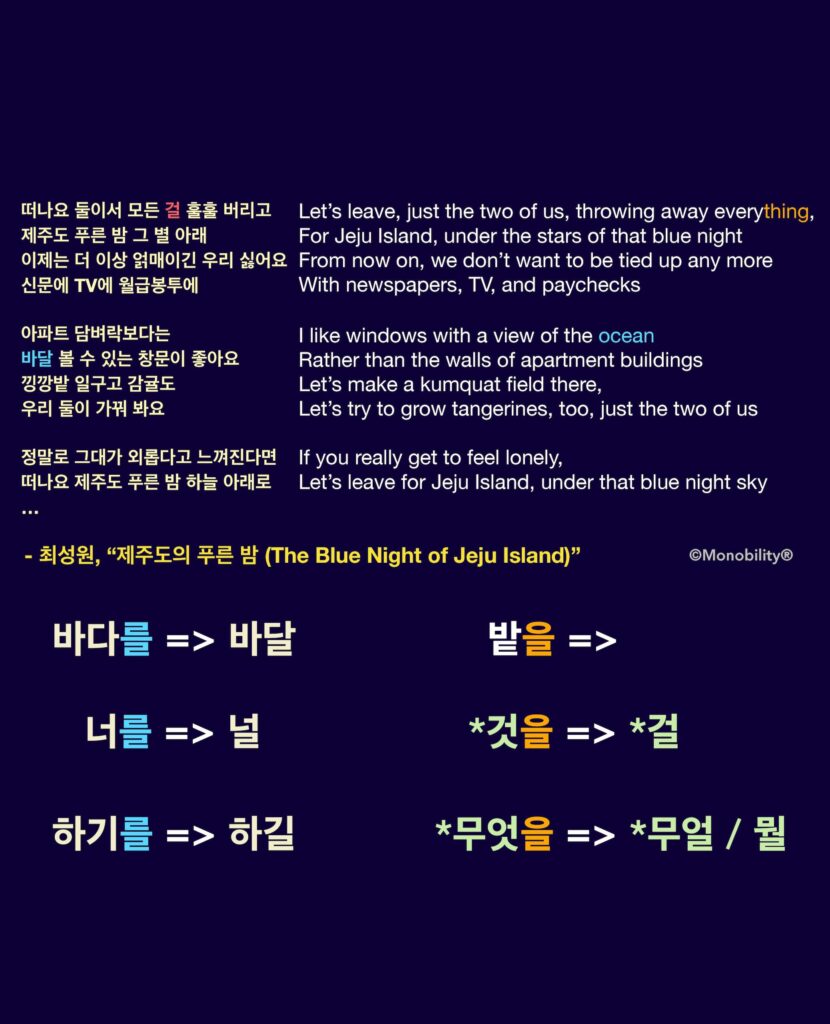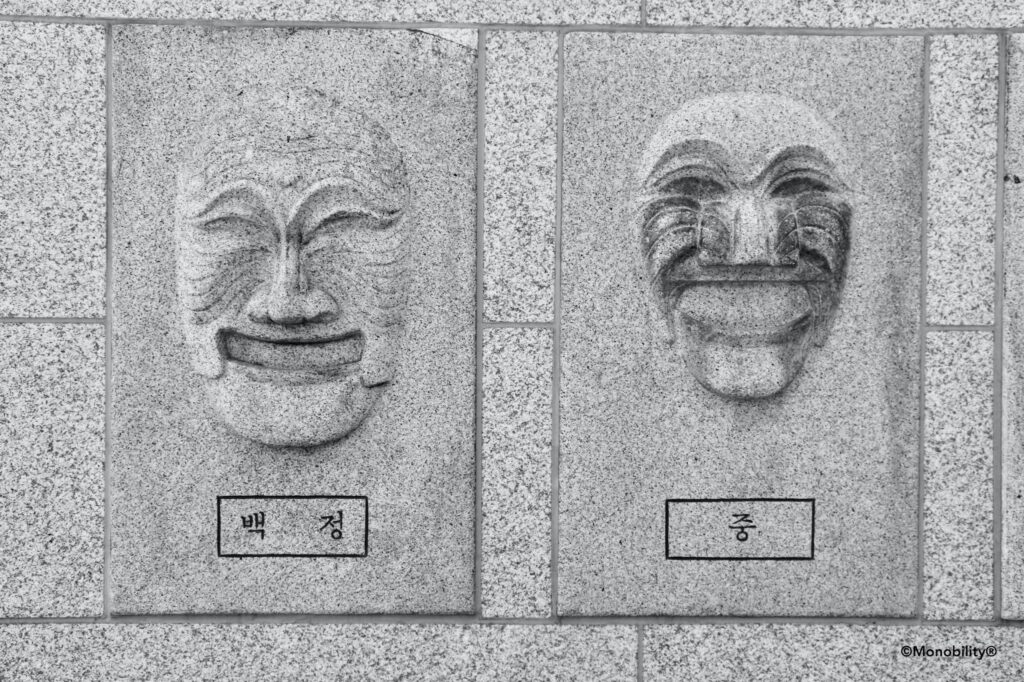In everyday informal conversations, you can omit object particles -를/-을 if the object is obvious. But such omissions, if overused, may make you sound like a baby. Instead of omission, to specify the object quickly, Koreans often contract (shorten) -를 by pronouncing ㄹ at the final position of the preceding noun.
- 바다를 => 바달
- 너를 => 널
- 하기를 => 하길
On the other hand, -을 can not be contracted because the noun already has a consonant, except for frequently used nouns like 것 (thing) or 무엇 (what); for these popular nouns, one can supersede the final ㅅ with the more powerful ㄹ.
- 이것을 => 이걸
- 무엇을 => 무얼 / 뭘
All consonants are created equal, but some consonants are more equal than others.^^


Check out our Facebook for much more:


